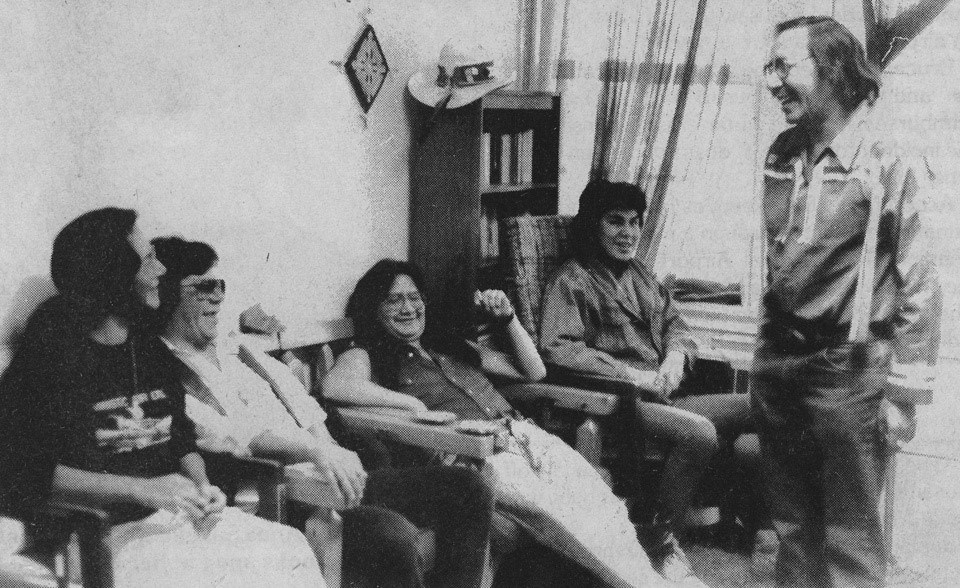THUNDER BAY -- Nishnawbe Aski Nation and the Sioux Lookout First Nations Health Authority are mourning the passing of Peter Fiddler, the last remaining member of the Sandy Lake Hunger Strike.
According to a news release from NAN, Peter’s hunger strike in the 1980s “raised national awareness about the deplorable state of health care for NAN First Nations.”
In the release, Grand Chief Alvin Fiddler said they are “deeply saddened to learn of Peter’s passing, and we mourn the loss of our dear friend with his family and the entire community of Sandy Lake First Nation.”
The hunger strike by Peter and the Sandy Lake Five helped focus a national spotlight on “the horrific injustices inflicted on our members and directly contributed to an overhaul of health services in Northwestern Ontario, especially for First Nations peoples.”
Described by researchers as a major moment in the history of Canadian medicine, their actions “helped expose how our members were racially segregated in Indian hospitals with sub-standard care, used as guinea pigs by the medical community, and needlessly exploited during trials for research that has now been thoroughly discredited.”
Grand Chief Fiddler offered immense thanks for Peter’s leadership.
“We will honour his legacy through our ongoing work to improve health care for our members and communities.”
The Sandy Lake Five consisted of Peter Fiddler, Josias Fiddler, Peter Goodman, Luke Mamakeesic, and Allan Meekis. They fasted in the visitor’s lounge at the Sioux Lookout Zone Hospital starting on January 18, 1988.
The five men brought much-needed attention to years of frustration, meaningless consultation, worsening health, and deteriorating relationship between Indigenous communities and the Medical Services Branch.
Negotiations with Health and Welfare Canada led to an agreement between Indigenous leaders and the federal government, ending the hunger strike on January 20, 1988.
Under the terms of the agreement, both parties – NAN, on behalf of the communities, and the federal government – committed to improving health services in the Sioux Lookout zone.
Their efforts gained them national attention over the deplorable health conditions of First Nations located in NAN territory.
NAN and the federal government agreed to review health services, within a framework that would be consistent with and support the right of Indigenous people to determine their own health needs and to control the health delivery system that aims to meet their needs.
The hunger strike also prompted an investigation by a health panel that looked into issues in the Sioux Lookout region and “recommended solutions to improve health-care delivery."
The panel included Archbishop Ted Scott, former Primate of the Anglican Church of Canada; Wally McKay, former Grand Chief of Grand Council Treaty #9 with NAN; and Dr. Harry Bain, a former Psychiatrist-in-Chief at the Hospital for Sick Children in Toronto.
Their 138-page Report of the Scott-Mckay-Bain Health Panel, called From Here to There: Steps Along the Way, was released in May 1989 in Muskrat Dam First Nation.
It offered 94 recommendations, including a move towards “Native self-government with the full participation of First Nations communities for the ongoing responsibility of health care.”
It also led to the creation of the Sioux Lookout First Nations Health Authority and the Sioux Lookout Meno Ya Win Health Centre.
Calling him a “health-care advocate,” the Sioux Lookout First Nations Health Authority will miss Peter’s unwavering commitment to all Northern communities and to health-care reform.
“The impact of Peter Fiddler’s legacy also extends across the North, reaching into the lives of those who experienced firsthand the positive changes he tirelessly strived for,” said Sonia Isaac-Mann, CEO and President of the Health Authority, in a release.
“His advocacy ultimately laid the foundation for constructive dialogue surrounding Indigenous health care. As we mourn the passing of Peter Fiddler, let us remember his courage, resilience, and determination.
“His legacy will always inspire us to continue the pursuit of equitable health care in the communities we serve. SLFNHA expresses deepest condolences to Peter Fiddler’s family, friends, and the entire community of Sandy Lake First Nation,” Isaac-Mann said.
Peter died on January 8.
